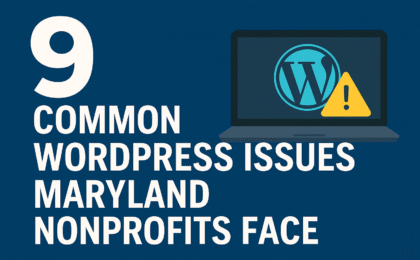Siri and Alexa are becoming part of more and more households throughout the country and the world. When you need to pull something up on the internet, increasingly, your first instinct is to call it out to your chosen voice technology while washing your dishes.
This being the case, it is becoming necessary for websites to take voice technologies into consideration when developing their SEO strategy. There are specific steps you have to take in order to make your website voice-ready. Here are some methods you can use to optimize your website for voice.
#1: Focus on local results
A large percentage of voice inquiries are location-related – address, hours of operation, certain services located nearby, etc. First of all, make sure you’re on Google Business Profiles and you’ve claimed and properly updated your business on Google Maps. Beyond that, make sure the content of your website easily answers location-based questions.
#2: Be casual

Using voice technologies means people are speaking – and speaking means they are using their natural speech pattern. Most people speak with an informal, conversational tone, so in order for your website to be voice tech-friendly, it should be in such a tone as well. Simplify your language, and use spoken elements such as contractions and abbreviations.
#3: Have a casual FAQ
Your website should also have an FAQ, and this casual tone should be applied to that portion of your page as well. Rather than reading like a technical document, your FAQ should be structured in real questions and answers. This will make it more likely that excerpts will be featured on Google, making them more accessible to voice searches.
#4: Use long-tail keywords
Voice searches tend to favor “long-tail keywords.” These are longer, more specific search phrases that might come up in particular situations and sound like they’re coming off the top of someone’s head. For example: “How do I get my car out of the garage after the booth is closed and the attendant has left for the night?” – Incorporating these types of search terms into your content will mean it is more equipped for the most common types of voice searches.
#5: Answer key questions

The above item means that when people are consulting Siri or “hey Google,” more often than not, they’re looking for the answer to a specific question or the resolution to a specific problem that just arose. Figure out which of these questions are most relevant to you, and optimize your site for them.
#6: Keep your language simple
A major factor in making your website’s language applicable to voice is readability. Concise, easy-to-understand language is not only best suited to web content in general, it is the best way to optimize for voice searches because, again, it’s how people talk.
#7: Keep your keywords simple
While voice search terms may be long because that follows people’s speech patterns, that doesn’t mean they’re overly complex. Just as the overall language of your site should be simple and easy to understand, so too should the search terms you’ve embedded into your content and FAQ.
#8: Adapt to regional dialects

In the same vein as focusing on local results, make sure you are speaking not only how people do in general, but how people do in your area. If you have a brick-and-mortar location that you want people to find when they’re asking their voice recognition software where they can find the nearest donut at 1am, make sure you’re saying it in the manner that best fits the region where you’re located. If you’re in Boston, say it like a Bostonian. If you’re in California, say it like a Californian.
#9: Think about your brand’s spelling
Creative or unusual spellings in branding such as plays on words or intentional, stylized misspellings are great for making your brand stand out, but they may not be the easiest for voice technologies to interpret. Think about how any such idiosyncrasies may affect voice search optimization and if you’re unable to rebrand to correct for any discrepancy, work on developing memorable and unique content that will jump to people’s minds when they make a voice inquiry.
Tailoring your web content to be receptive to new technologies like voice will not only make you accessible to a wider range of people, it will also distinguish you as being current, in touch with trends, and relevant. Having this in mind in general when crafting your web presence will ensure you success in the web facet of your business. Keep following us for more ways to stay in touch with these latest trends.













































































[…] This is also an argument for generally making your website favorable to voice. […]
[…] factor has come to bear on other optimization discussions we’ve presented. Long-tail keywords are detailed, highly specific keyword phrases that typically […]